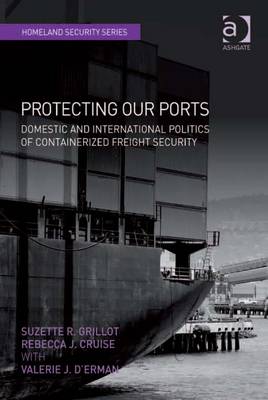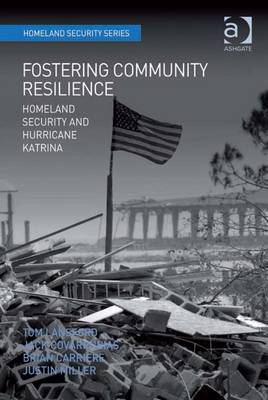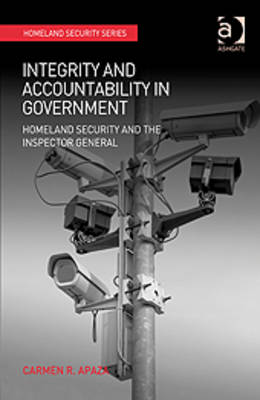Homeland Security
4 total works
Protecting Our Ports
by Suzette R. Grillot, Rebecca J. Cruise, and Valerie J. D'Erman
Since the terrorist attacks of September 11, 2001, there has been much discussion of the security of borders and ports of entry in the United States and around the world. Ports of entry, particularly sea ports, are viewed as one of the most defenceless targets for a terrorist attack. In response to this perceived vulnerability, a number of port security initiatives have been implemented both on both a domestic and international level.
This timely project investigates a number of issues surrounding the container security issue. It examines the scope of containerized freight security, analyzes cooperation between agents in the United States and abroad, explores the politics of port security, and provides an assessment of 17 of the world's sea ports. The work sheds light on the container security threat and the domestic and international responses that have emerged, as well as those steps that still must be taken.
A comprehensive exploration of how national and state security policy is effected by the production, storage, transportation, safeguarding, export and use of enriched uranium - and, by extension, plutonium. A wide range of geopolitical, security and technical issues are examined, as are the challenges presented to national and global governance.
This book contributes to a new understanding of one of the most serious security implications inherent in the current rapid growth in nuclear power generation. It assesses attempts made to deal with the latent dangers to Homeland Security posed by potential misuse of enriched uranium and plutonium, considering both the chances for success, and the costs of failure.
Fostering Community Resilience
by Professor Tom Lansford, Jack Covarrubias, Brian Carriere, and Justin Miller
Using the Mississippi Gulf Coast as a case study, this book focuses on the aftermath of Hurricane Katrina and develops the concept of resilience and how it applies to Homeland Security in the aftermath of the worst natural disaster to hit the United States. Through the lens of the national response to Hurricane Katrina and the local lens of the recovery of the Mississippi Gulf Coast community, this work elucidates the particular qualities that make a community and a nation more resilient, discussing resilience as a concept and an application. Additionally, it explores in-depth the interconnected fields that comprise resilience; including economic, social, infrastructure, and political domains. By examining what went right, what went wrong, and what can be improved upon during the Mississippi Gulf Coast's recovery, scholars and policymakers can better understand community resilience not just as a concept, but also as a practice.
The Inspector General (IG)'s mission is to expose fraud, waste and abuse as well as promoting efficiency in federal agencies. Each year billions of dollars are returned to the Federal government or are better spent based on recommendations from IGs reports. IG investigations have also contributed to the prosecution of thousands of wrongdoers including contractors and public employees. With scarce literature on Inspectors General (IGs), Apaza addresses this by looking at the Inspector General for the Department of Homeland Security (DHS) which has proven to be of significant benefit to the US government.



